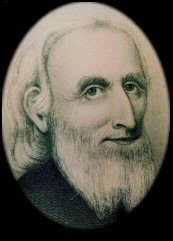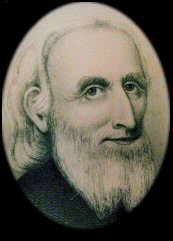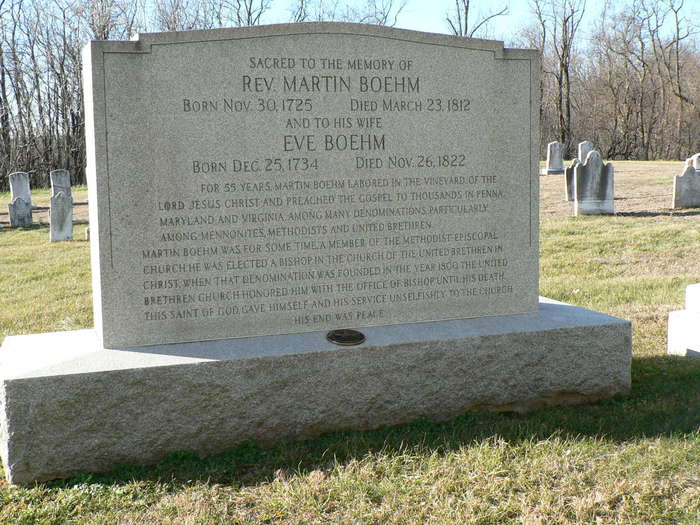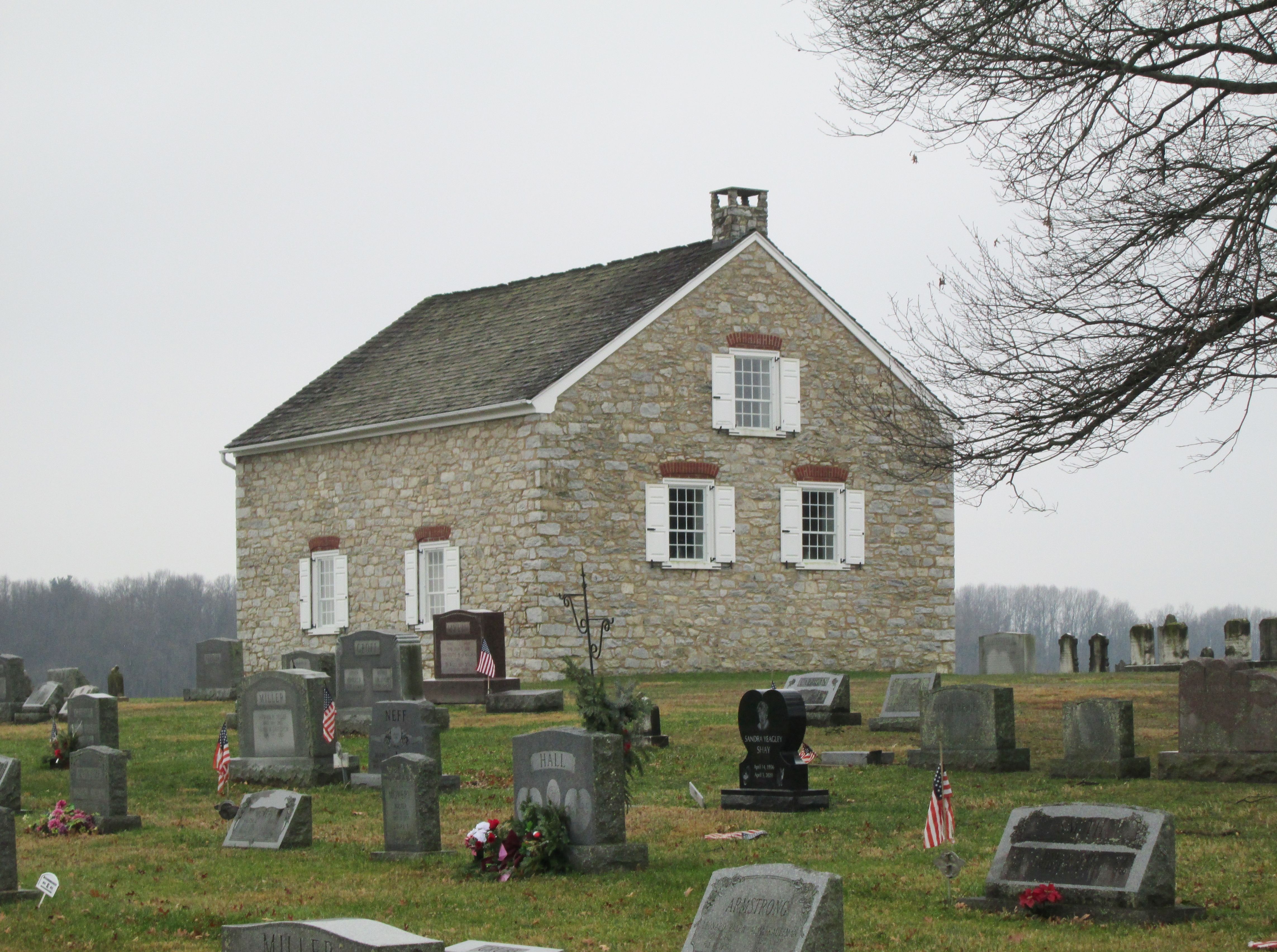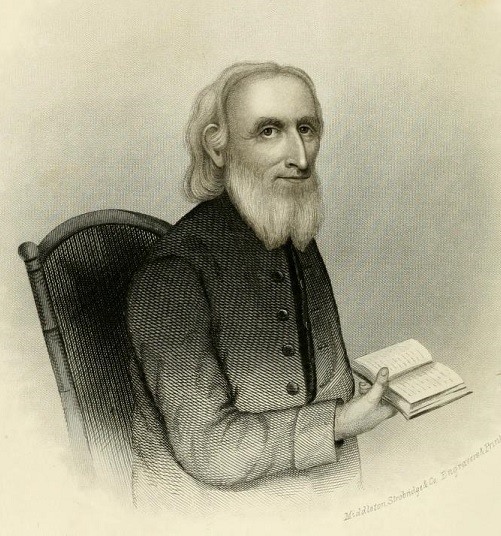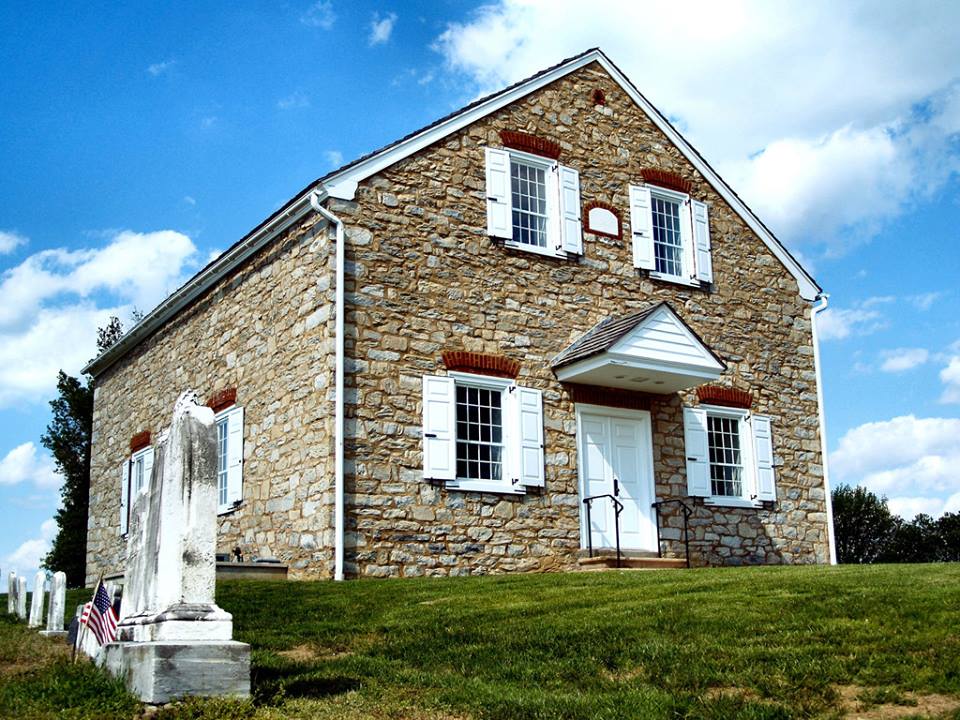The Great Meeting we know most about occurred on May 10, 1767, at Long’s Barn in Lancaster, Pa. Bishop Boehm spoke in the barn while some of his Mennonite pastors preached in the orchard outside. Boehm told of his plow-side conversion. As the sermon ended, a Reformed minister named William Otterbein rose from his seat, hugged Boehm, and declared, "We are brethren." Our denomination’s name is based on Otterbein’s impromptu words.
Boehm’s evangelistic fervor and his associations with Christians from other denominations disturbed his fellow Mennonites. A group of Mennonite leaders confronted Boehm, asking that he repent and turn from his ways. He refused. After a second confrontation and refusal, in 1775, Boehm was excommunicated. His transgressions, as recorded in the excommunication document, included associating with outsiders, especially persons who approved of the practice of war; preaching that the Bible could be burned without harming the church of God; and leading people astray by teaching that Mennonites placed too much emphasis on the ordinances.
In 1800, the new denomination held its first Conference.
He served as a Bishop until his death in 1812.
The Great Meeting we know most about occurred on May 10, 1767, at Long’s Barn in Lancaster, Pa. Bishop Boehm spoke in the barn while some of his Mennonite pastors preached in the orchard outside. Boehm told of his plow-side conversion. As the sermon ended, a Reformed minister named William Otterbein rose from his seat, hugged Boehm, and declared, "We are brethren." Our denomination’s name is based on Otterbein’s impromptu words.
Boehm’s evangelistic fervor and his associations with Christians from other denominations disturbed his fellow Mennonites. A group of Mennonite leaders confronted Boehm, asking that he repent and turn from his ways. He refused. After a second confrontation and refusal, in 1775, Boehm was excommunicated. His transgressions, as recorded in the excommunication document, included associating with outsiders, especially persons who approved of the practice of war; preaching that the Bible could be burned without harming the church of God; and leading people astray by teaching that Mennonites placed too much emphasis on the ordinances.
In 1800, the new denomination held its first Conference.
He served as a Bishop until his death in 1812.
Family Members
Advertisement
Explore more
Sponsored by Ancestry
Advertisement
